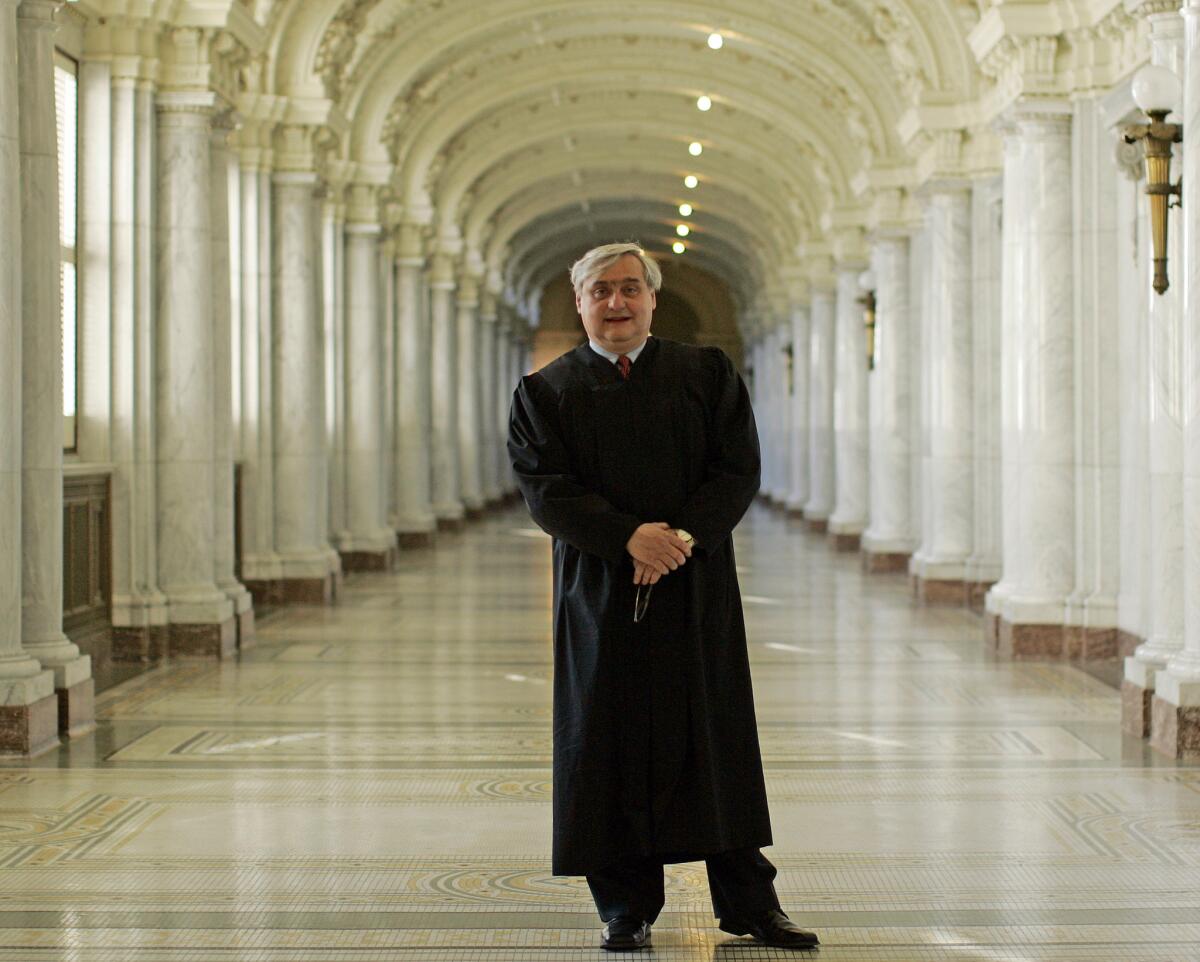Executions should be by firing squad, federal appeals court judge says

Reporting from San Francisco — Days before an Arizona murderer gasped and snorted for more than 90 minutes and died nearly two hours after his execution began, a conservative federal appeals judge called for replacing lethal injection with firing squads, saying the public must acknowledge that executions are “brutal, savage events.”
“Using drugs meant for individuals with medical needs to carry out executions is a misguided effort to mask the brutality of executions by making them look serene and beautiful — like something any one of us might experience in our final moments,” U.S. 9th Circuit Court Chief Judge Alex Kozinski wrote in a dissent in the Arizona death penalty case of Joseph Rudolph Wood III.
“But executions are, in fact, brutal, savage events, and nothing the state tries to do can mask that reality. Nor should we. If we as a society want to carry out executions, we should be willing to face the fact that the state is committing a horrendous brutality on our behalf.”
Kozinski revealed his views in a dissent filed Monday to an order in which the full 9th Circuit refused to review a decision of a 9th Circuit three-judge panel to put Wood’s execution on hold.
The panel had ruled Saturday that Wood had a 1st Amendment right to be given more information about the execution drugs, including the manufacturer, and about the qualifications of members of Arizona’s execution team. Kozinski said he would have rejected Wood’s challenge.
The U.S. Supreme Court overturned the 9th Circuit panel Tuesday, and Wood’s execution took place Wednesday, throwing new fuel onto the death penalty debate.
In a telephone interview with the Los Angeles Times before Wood’s execution, Kozinski said he has voted in favor of capital punishment and remains “generally not opposed to the death penalty.” But he said states should scrap lethal injection protocols, which have flooded the federal courts with constitutional challenges.
“I personally think we should go to the guillotine, but shooting is probably the right way to go,” Kozinski said.
The guillotine was quick and “pretty much foolproof,” he said, but probably would not be accepted by the public. A firing squad would be “messy but effective.”
His dissent could be read as much as an indictment of capital punishment as a call for harsher methods, however. He cited California’s inability to execute anyone since 2006 because of legal challenges.
“Old age, not execution, is the most serious risk factor for inmates at the San Quentin death row,” he wrote.
In calling for firing squads, Kozinski said, “Eight or 10 large-caliber rifle bullets fired at close range can inflict massive damage, causing instant death every time.”
He said the public should not shield itself “from the reality we are shedding human blood.”
“If we as a society cannot stomach the splatter from an execution carried out by a firing squad, then we shouldn’t be carrying out executions at all.”
Kozinski, a Ronald Reagan appointee, is known for writing audacious, thought-provoking rulings, and legal scholars have been poring over his dissent.
“He is invested in being provocative,” UC Berkeley law professor Franklin Zimring said. “And what he is doing is reacting to the way in which the public relations halo around lethal injection has dissolved in calendar year 2014.”
Botched lethal injections this year have stirred concern, and manufacturers of drugs used in executions have been refusing to supply them. Some prisons have resorted to compounding pharmacies.
Arizona had used pentobarbital for executions, but Wood’s lawyer said the state had informed Wood it would use a new combination of chemicals because the prison could no longer obtain pentobarbital from the manufacturer.
In asking the appeals court to put a hold on Wood’s execution, his lawyer cited the Jan. 16 lethal injection in Ohio of Dennis McGuire.
Witnesses said McGuire “started struggling and gasping loudly for air, making snorting and choking sounds which lasted for at least 10 minutes, with his chest heaving and his fist clenched,” the court challenge said. “Deep, rattling sounds emanated from his mouth.”
In April, Oklahoma inmate Clayton Lockett died of a heart attack 43 minutes after the drugs were injected. Lockett writhed, groaned and tried to speak during the execution, which officials had called off before his death.
Follow @mauradolan.
More to Read
Sign up for Essential California
The most important California stories and recommendations in your inbox every morning.
You may occasionally receive promotional content from the Los Angeles Times.











